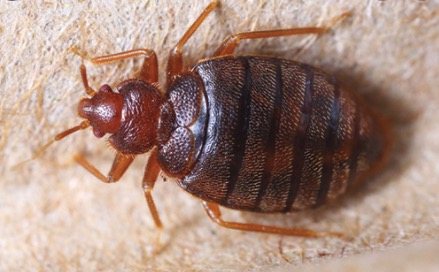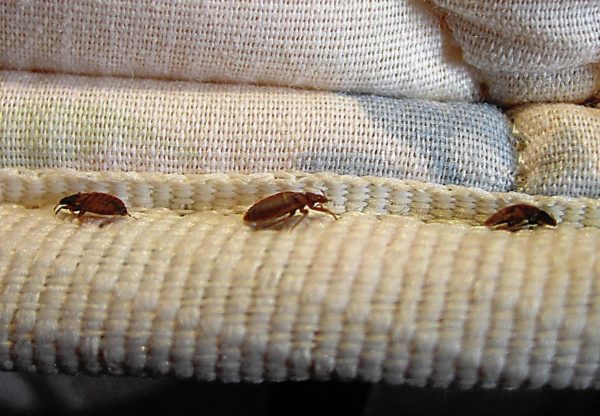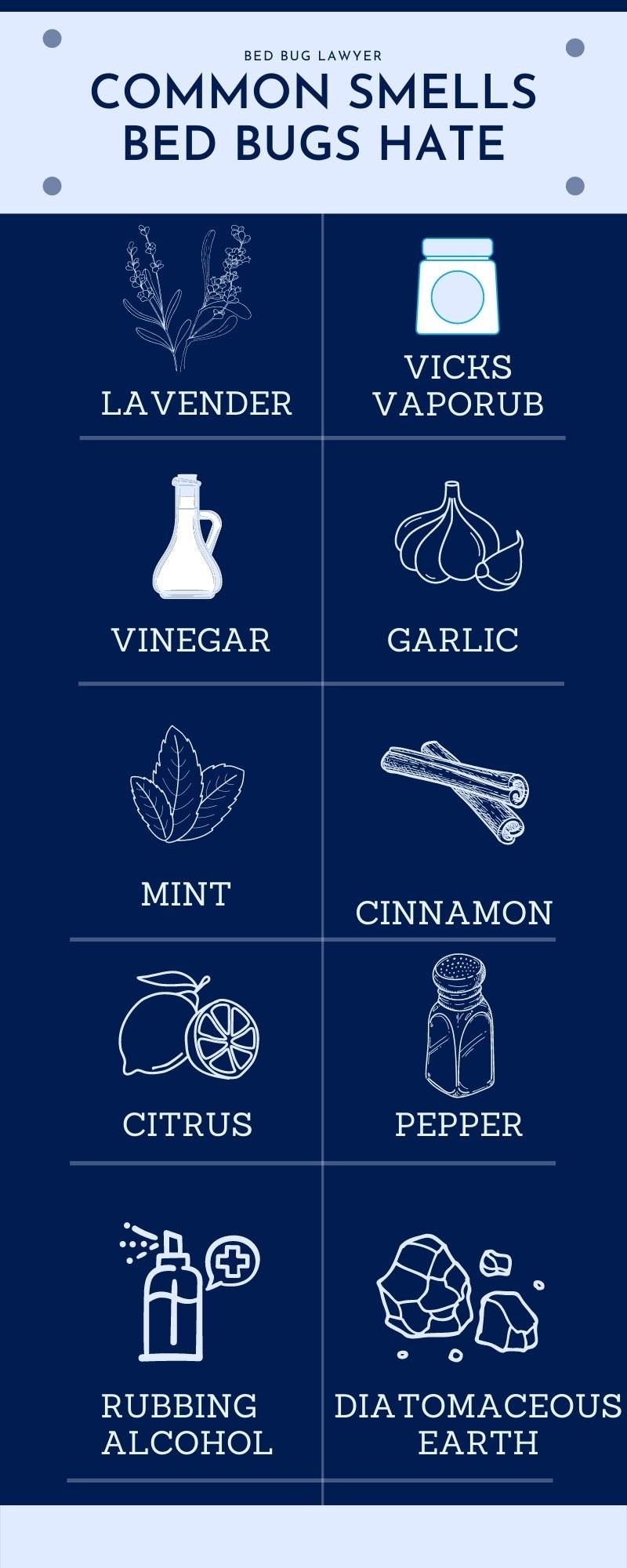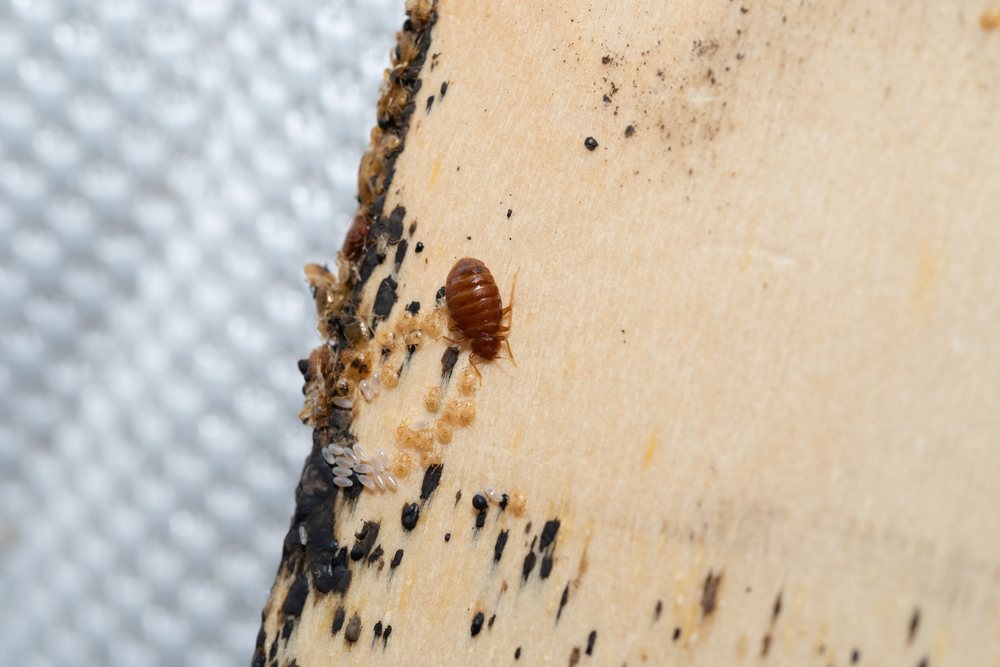When dealing with a bed bug infestation…
You’ll do anything and everything you can to get rid of them.
While instantly killing these insects is the most effective option, that’s often easier said than done.
Fortunately, there are plenty of deterrents that can either flush them out of hiding or simply prevent bed bugs altogether.
Scented objects are commonly used to remove a variety of vermin, not just bed bugs.
In the case of bed bugs, certain smells are damaging due to how these insects breathe. They actually process oxygen through a series of tracheae found across their exoskeleton.
This means that oxygen, and by extension any chemicals or scents in the air, are directly inhaled by the insect and can cause damage.
This is in contrast to mammals, who possess complex respiratory systems that filter air as it is inhaled.
Page Contents:
Do Bed Bugs Hate Lavender?
To humans: lavender has a pleasant scent. It’s commonly used in aromatherapy to create a soothing atmosphere, and is rumored to help the body recover from mild pain.
For bed bugs, lavender is no different from the myriad of other scents and chemicals used to eradicate them.

Lavender contains a compound called linalool. This is naturally produced by over 200 species of plants and fruits, but it’s also commercially used in many pesticides.
This is why bed bugs, as well as other insects and arachnids, also hate the following scents:
- Mint
- Cinnamon
- Basil
- Citrus
(All of these contain linalool in them.)
Sprinkling lavender oil or spraying lavender scent in areas where bed bugs are hiding is useful, but not too powerful on its own. If the scent doesn’t outright kill these pests, it will drive them to flee their nest, leaving them exposed to any bed bug traps or other insecticides you have applied.
Do Bed Bugs Hate Vicks?
If you’ve ever had a cold or dealt with some sort of congestion, you might have used Vicks VapoRub to feel a bit better.
Menthol is an organic compound that is derived from the mint plant, particularly from peppermint and spearmint. It is a waxy, crystalline substance that has a cooling and soothing effect when applied to the skin or mucous membranes. Most Vicks products include trace amounts of menthol as a primary ingredient. Menthol, like the aforementioned linalool, is naturally produced from mint plants.
Therefore, bed bugs will react to the scent of Vicks the same way they would react to the scent of lavender.
Does Vinegar or Garlic Repel Bed Bugs?
Vinegar is very effective at repelling bed bugs. However, bed bugs hate vinegar for different reasons than they hate lavender or mint.
Vinegar is an acetic acid, which means that while it has very mild acidic properties, it contains a powerful scent and is still capable of corrosion.
In bed bugs, the scent of vinegar overwhelms their nervous system and corrodes protective chemicals along their exoskeletons, effectively drying them out.
Garlic also repels bed bugs for the same reasons as mint and lavender (chemical compounds produced by the plant).
Garlic cloves (along with related vegetables like onions) produce a compound called allicin, which is released whenever the plant is cut open.

This is the compound that gives garlic its trademark scent.
(And is also responsible for garlic breath).
Insects have no way of filtering out the scent caused by allicin, and will therefore flee when they smell garlic in the air. Combining garlic with a vinegar treatment is a great way to flush out bed bugs, though keep in mind that neither of them are effective ways to kill them.
Scents That Bed Bugs Hate
As you’ve seen already, many of the scents which irritate a bed bug’s senses come from compounds produced by plants.
If a product contains the smells of mint, cinnamon, citrus, or any other spices, it can be used as a natural pesticide. This is why common foods like lemons, oranges, and pepper are recommended for repelling bed bugs as well.
Bed bugs also hate the scent of diatomaceous earth. This powdery substance is often laid out in places where bed bugs or other insects travel, causing the particles to embed themselves in the bug’s exoskeleton.
Not only will the scent of the earth linger on any bed bugs which pass over it, but the powder will slowly eat away at the exoskeleton until the bed bug’s skin dehydrates, causing it to die.
Do Bed Bugs Have A Smell?
One of the common signs of a bed bug infestation is a musty odor in areas where they are gathered together. Typically, the odor is found on or around bedding materials like mattresses and pillows.
Bed bugs, like most insects, release specialized pheromones when communicating with each other. The pheromones primarily act as a defense mechanism. If bed bugs feel threatened, they will release these pheromones to alert other bugs in the colony.
They also use pheromones to leave “scent trails.” These trails exist mainly to guide bed bugs to their food source (sleeping humans), as well as lead them back home once they’ve finished feeding for the night.

Of course, pheromones aren’t the only source of the musty stench. Bed bug droppings can also leave a residual smell in the air.
Bed bug poop looks like very tiny black pellets. Signs of droppings are naturally found where bed bugs reside, whether it be on bed sheets or dark corners of the room.
While humans might not be able to pick up on every scent trail, other animals can. Bed bug dogs are commonly used by pest removal companies to sniff out bed bug colonies, and if trained properly, they can accurately trace the pheromones back to the bed bugs’ nest.
Why Do Bed Bugs Smell When You Kill Them?
If you ever crush a bed bug–either by intentionally killing them when you’re awake, or unintentionally squashing them in your sleep–then you may notice that the bug leaves a lingering odor.
There are 2 reasons for this:
- Alarm Pheromones: As explained earlier, bed bugs use pheromones to communicate with one another. When a bed bug is threatened, it will release alarm pheromones to warn the colony of danger. Killing a bed bug means crushing its scent glands, which in turn releases the alarm pheromones into the air.
- Blood: If you kill a bed bug shortly after it’s fed, then you’ll catch a faint scent of blood. It takes a bed bug several hours to digest human blood, so the earlier you crush the pest, the “fresher” the smell will be.
Because of the way insects are built, they don’t decompose the way other animals do when they die. When fish, birds, reptiles and mammals die, proteins in the body begin to break down and the internal organs slowly dissolve.
(It’s this decomposition that creates the “stench of death.”)

But insects only decompose internally. While their organs are quick to decay (usually within a few hours after death, compared to the weeks-long process in other creatures), their exoskeleton remains unaffected.
The exoskeleton stays intact in the exact pose the bug died in, almost like a mummified body.
Therefore, if you find deceased bed bugs lying around somewhere, chances are that you’re looking at the exoskeleton of a once-living bed bug. The body will remain odorless since it never released pheromones or undigested blood after it died.
Do Bed Bugs Make Noise?
No bed bugs don’t make any noise. This is one of the reasons why these creatures are hard to detect.
Since bed bugs lack wings, they can’t create a buzzing sound like flies, bees, or mosquitoes. Their incredibly small size also means they don’t make a sound when they scuttle along surfaces late at night.
And since they communicate exclusively through scents, there’s no real need for them to use other means of audio communication.
There’s a good reason for bed bugs to be silent. As nocturnal feeders, they know when exactly to start feeding and when exactly it’s time for them to leave.
Summary
- Scented objects can be used to repel bed bugs.
- Lavender, VapoRub, and other products with certain chemicals are effective natural bed bug repellants.
- Bed bugs rely on pheromones to communicate, and produce alarm pheromones when threatened.
- When killed, bed bugs release all of their pheromones at once, creating a musty odor after they die.





